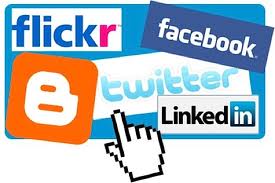 By Felicia Cravens, Contributor to US Daily Review
By Felicia Cravens, Contributor to US Daily Review
So you want to use social media, but what application do you use? How do you choose between Facebook, Twitter, LinkedIn, Google+ and all the others, especially if you haven’t used one before? In the next few weeks, we’ll touch on each of them, and you can learn about some of the features of each.
My first experience with social media was joining discussion forums for stay-at-home moms in 1999, simply creating a user account to comment on other people’s statements. I soon found political forums, and then ventured into blogging with my own free site. By 2008 I was talking online a lot, but was still resistant to try Facebook. “Facebook is for teenagers!” I screeched at the nice guy trying to convince me otherwise. But I did it, and have since built quite a substantial circle of influence, and made many friends online who have become real-life friends. When the same guy nagged me about joining Twitter, I was indignant – “Twitter is for teenagers who can’t SPELL!” But I did it. Nearly three years later I have connections and friends all over the country, some of whom I occasionally get to meet in person.
Twitter: News, Business, Politics, Money. Really!
Twitter begins by asking the question: “What’s happening?” It’s an invitation to exclaim, promote, gossip, report, and share and even complain. You’ve probably heard grumbling about Twitter’s lack of seriousness, but as Twitter has become more popular with users in business and politics, it has evolved into a much more important role.
For example, during the demonstrations in Iran following their 2009 elections, Iranian demonstrators used Twitter to alert each other to conditions in various parts of Tehran, report on movement of government forces, and to tell stories of abuse and oppression at the hands of those forces. The U.S. State Department even got involved and asked Twitter to reschedule an upgrade to their network so that the Iranian people could maintain access to this vital medium of communication.
Twitter has also replaced broadcast news for some people. Reporters in the mainstream media such as Jake Tapper, Rick Leventhal and Nicholas Kristof all have Twitter accounts, and use them regularly to pose questions or tease news stories to their followers. Traditional news outlets are also aboard: CNN , The Washington Post, ABC News and a host of other media outlets tweet breaking news daily. New Media outlets like Big Hollywood, Reason TV, The Huffington Post and PJTV have also flooded Twitter, and provide stories the mainstream media might be missing or ignoring. Twitter allows you to follow news from multiple sources at the same time, and keep up with the headlines easily and quickly.
Twitter also makes it easy to follow topics of interest. Labels called hash tags help you find others talking about things like conservative politics (#tcot – Top Conservatives On Twitter), popular television shows (#DWTS – Dancing With The Stars), recommendations of users to follow (#FF or #FollowFriday) and many other topics. These tags, when used in Twitter’s search box, display ALL the tweets about a particular subject, helping you quickly find users of similar interests, and start conversations or join existing ones.
To check out Twitter for yourself, there are some great intros available:
The Mashable Twitter Guide Book
TwiTip – 13 Twitter Tips and Tutorials for Beginners
Finally, a few words about interaction:
Follow, Follow, Follow – Following good users enhances the experience. When you find someone worth following, take a look at the people they follow, and follow some of them
Speak Up – Twitter is a great place to “talk to strangers;” in fact, it’s expected. Just place an @ in front of any user name and you’re talking to them. If you never address anyone directly on Twitter, you limit your opportunities to make connections and share information.
Ask for Help – There are many kind and helpful people on Twitter so be sure to ask for help if you get stuck. Chances are there’s someone who has had your particular tech problem, moral dilemma or skin rash, or has seen the movie you’re buying tickets for, or read the book you just bought. The list goes on and on.
That’s quite a bit more than just reporting on one’s latest Starbucks visit.
Felicia Cravens walked away from her accounting degree over a decade ago to become a stay-at-home mom. Since then, she has filled her “spare time” teaching drama in an after-school program and working in conservative politics. She founded the Houston Tea Party Society in 2009, serves as a frequent media contact, and trains and equips people new to the political process. She can be found on Facebook and Google+, and on Twitter as @somethingfishie.

Average Rating